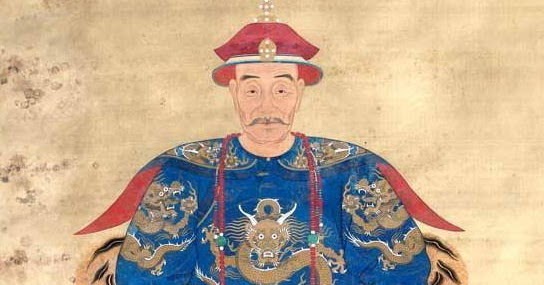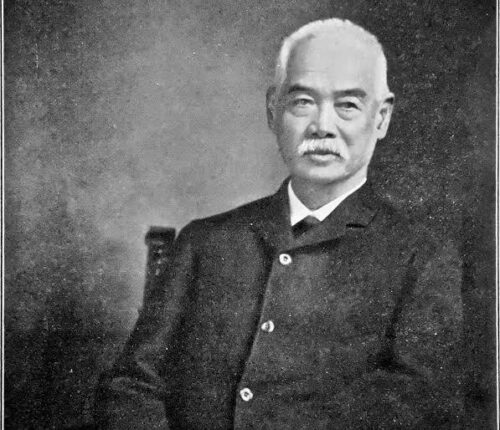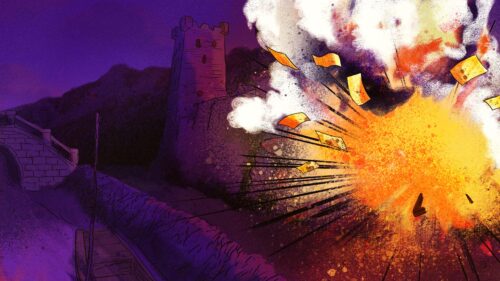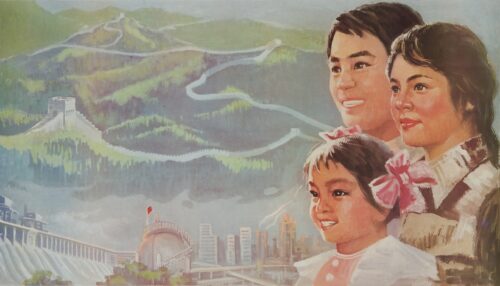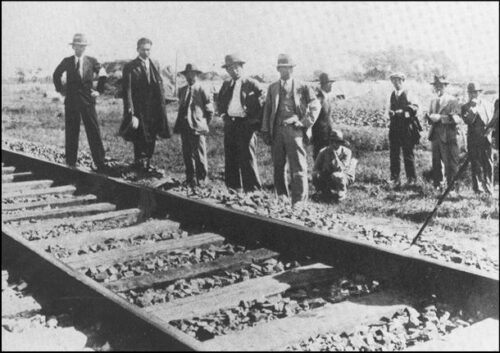This Week in China’s History: October 2, 1678
This week we look back at the end of a life that’s long captured my imagination: that of Wú Sānguì 吳三桂, who died on October 2, 1678. I’m still amazed that Wu is not yet the subject of a biography in English! Many of his actions are worthy of their own columns — watch this space — but since we’re marking the anniversary of his death, let’s consider his singular career as a whole.
“Treason” is a grave charge — usually a capital offense — but it’s narrower than is often intended in casual conversation. To commit treason, one has to actively work, often through force of arms, to overthrow a government they’ve pledged loyalty to. Traitors can reach celebrity status, some even becoming figures of speech: Benedict Arnold, Quisling, Brutus. In China, Wu Sangui has achieved this status for betraying not one dynasty but two. A deserved reputation?
The son of a general, Wu Sangui was born in 1612 near Nanjing. A talented art student when he was very young, Wu followed his father’s career path, joining the Ming military and rising to the rank of general through his actions on the northeastern frontier, in today’s Liaoning Province.
By the 1640s, the Ming world was crumbling amid internal and external crises. Wu Sangui had for some time led his forces against the Manchus, whose newly declared Qing Dynasty had designs on the throne in Beijing. Had it not been for a succession struggle following the death of Emperor Hong Taiji, the Manchus might well have made good on their ambitions in 1643, but they stopped just short of invading. In the spring of 1644, Wu Sangui’s army was all that stood between the Manchus and the First Pass Under Heaven through the Great Wall at Shanhaiguan.
In that moment, though, the Manchus were not the only threat facing the Ming. An army of Chinese rebels, driven by years of economic decline and administrative incompetence, was bearing down on the capital as well. Threatened from both the west and the east, the emperor ordered Wu Sangui to lead his armies west to defend Beijing against Lǐ Zìchéng’s 李自成 rebels, a risky move that would leave the pass vulnerable to the Manchus.
The strategy tried to navigate between the rebels and the invaders but foundered on both shoals. Before Wu could engage Li’s armies, the rebels captured the capital and the emperor hanged himself outside the Forbidden City. Meanwhile, the Qing forces seized the opportunity presented by Wu’s withdrawal and also advanced on the capital.
Wu found himself caught between two hostile armies, facing a choice.
He could remain loyal to the Ming. Yes, the emperor was dead, but Ming forces, and an elaborate bureaucracy, remained throughout the country. The Ming royal family had many branches; perhaps he could rally them.
Or he could join the rebels, who claimed that the Mandate of Heaven had passed to them in the disorder of the late Ming. An additional factor here was that the rebel leader, Li Zicheng, had taken Wu’s family hostage, trying to extort the general to aid him and his new Shun Dynasty.
Finally, he could side with the Manchus and help them accomplish exactly what he had been trying to prevent for more than 10 years. The Manchu Prince Regent, Dorgon, wrote to Wu Sangui in principled terms, dismissing Li Zicheng’s armies as “bandits” and affirming the Manchu ambitions for restoring Confucian order to China.
Wu’s choice between foreign invaders and domestic rebels played out over several weeks. Li executed Wu’s father to underscore his threat, while Dorgon promised Wu both vengeance and rewards. Eventually, Wu pledged his loyalty to the Manchus, and together their armies marched into Beijing. Li Zicheng’s forces looted what they could and fled. The new Shunzhi Emperor was installed in the Forbidden City.
This was just the start of a long and bloody transition from Ming to Qing, and that was Wu Sangui’s next act. The Manchus gave Wu command of new armies and sent him south to pursue the Ming loyalists. It was this, at least as much as the decision to back the Manchus, that earned Wu his reputation as a turncoat. Previously, Wu can plausibly be said to have been avenging the Ming by joining with the Manchu armies against the rebels that had sacked the capital and driven the Emperor to suicide. But now, Wu was merciless in his pursuit of the Ming royal house that his family had long served, leading an army of 60,000 through the southwestern border regions.
Heavily armed and geographically isolated, Wu operated with little supervision. He and two other top generals were given “feudatories” — semi-autonomous domains on the frontiers of the new empire — but the gift was a recognition of the status quo more than honor. The Three Feudatories — covering the provinces of Yunnan, Guizhou, Guangzhou, and Fujian, and parts of several others — were nominally loyal but practically independent.
The Three Feudatories had been expedient as the Qing struggled to establish their rule, but by the 1670s, the Kangxi Emperor saw them as an obstacle to his consolidation of the empire. In particular, the question of whether these lands could be passed on to their rulers’ descendants was unresolved: if Wu could leave his feudatory to his children, then in effect he had his own kingdom. This was lost on neither Wu nor the Qing court in Beijing.
In 1673, Kangxi offered Wu Sangui the opportunity to retire back to Liaoning, where he had grown up (and where he could be closely monitored). The emperor was uneasy with Wu’s growing autonomy and felt it would end badly. Such fears were justified: suspicious that Kangxi was moving to rein him in, Wu and the other two feudatories rebelled against the Qing.
After five years of fighting, Wu proclaimed a new Zhou Dynasty with himself as its emperor, a title befitting the luxurious lifestyle Wu had come to enjoy in Yunnan.
There were real reasons to think Wu’s rebellion would succeed. The Three Feudatories were as large as France and Spain combined, and collected a lot of silver in taxes each year. Thousands of miles away from the Qing homeland, these southern dominions were in many ways an alien world to the Manchus. The Qing Dynasty was new, and many Chinese still felt loyalty to the Ming, which Manchus had supplanted.
The rebellion started well for the mutineers — soon, Wu controlled most of China south of the Yangtze River. But, as often seems to happen, the rebels didn’t press their advantage when they held momentum early in the war, and ultimately Wu was unable to tap into that Ming loyalism for support. And no wonder: Chinese elites were skeptical of a man they saw as fundamentally disloyal, having betrayed the Ming and then the Qing.
Wu Sangui never saw the end of his rebellion against the Manchus. On October 2, 1678, he died of dysentery just five months after proclaiming himself emperor. His grandson carried on the rebellion for three more years, and the last of the rebels were put down in 1681.
The revolt had come close to bringing down an entire dynasty. In his “autobiography” of Kangxi, Jonathan Spence describes how the revolt left the Kangxi emperor shaken and unsure of himself: “This war had resulted from my miscalculations, and the responsibility for it — for all of it — was mine. I had not expected [Wu Sangui] to revolt…. I had not expected so many to follow Wu when he did revolt.” But in the end the Qing met the challenge, and in putting down Wu’s rebellion, the dynasty became stronger than ever, poised for its golden age.
Wu Sangui’s story — from heroic general to turncoat to kingmaker to conqueror to rebel to would-be emperor — is the stuff of legends, and controversy. What were his motives? Some suggest he valued only personal ambition, always choosing the path with the most potential rewards without regard to principles. Others see him as a romantic, assigning all his actions to his love of Chén Yuányuán 陈圆圆, his concubine who was taken captive by Li Zicheng (and whose fate has never been determined). Or was he a coward who always sought the easy way out?
Whatever his motives, there can be no doubt that Wu Sangui was a man who made choices of consequence (and is worthy of a screenplay). His actions also help point out the contingent nature of our world: the fate of two dynasties rested — not solely, but certainly in part — on the actions and choices of Wu Sangui.
This Week in China’s History is a weekly column.
